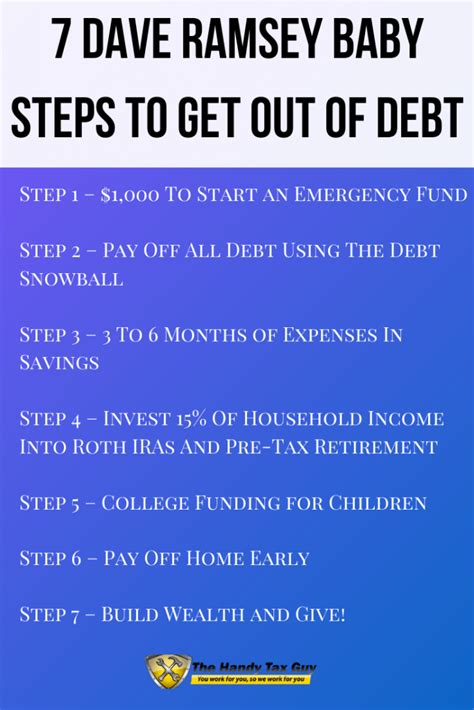
Money can corrupt and fundamentally alter relationships, according to billionaire Mark Cuban, who says wealth not only changes individuals but also the way others perceive and interact with them.
Mark Cuban, the billionaire entrepreneur and owner of the Dallas Mavericks, believes that accumulating wealth can negatively impact individuals and their relationships. In a recent interview, Cuban stated that “Money makes you ugly,” elaborating on how it changes not just the individual but also fundamentally alters how others treat them. This perspective offers a stark contrast to the common perception that money solely brings positive outcomes like freedom and opportunity. Cuban’s insights delve into the psychological and social dynamics at play when significant wealth enters the equation.
The Corrosive Effect of Wealth
Cuban’s assertion that “money makes you ugly” doesn’t necessarily refer to physical appearance. Instead, it suggests that wealth can expose or exacerbate negative character traits. He explains that money can amplify existing insecurities, ego, and greed. As people become wealthier, they may start prioritizing material possessions and status over genuine relationships and personal growth.
“It’s human nature,” Cuban acknowledges, suggesting that the allure of wealth is hard to resist. He points out that people often start behaving differently once they have money, becoming more self-centered or developing a sense of entitlement. This shift in behavior can alienate friends, family, and colleagues, leading to a breakdown in relationships.
Altered Perceptions and Interactions
One of the most significant points Cuban raises is how other people’s perceptions change when someone becomes rich. Suddenly, individuals who once treated you as an equal may start acting deferentially or try to exploit your wealth. Cuban notes that it becomes challenging to discern genuine connections from those motivated by financial gain.
“People treat you differently,” Cuban says, underscoring the altered dynamics. Friends might become envious or distant, while strangers might become overly friendly, seeking favors or opportunities. This can lead to feelings of isolation and mistrust, as the wealthy individual struggles to determine who truly values them for who they are, rather than what they have.
The Challenge of Maintaining Authenticity
Cuban’s comments highlight the difficulty of staying grounded and authentic in the face of immense wealth. It requires a conscious effort to maintain perspective and avoid letting money define one’s identity. He suggests that individuals should strive to remain true to their values and remember the principles that guided them before they became wealthy.
Furthermore, Cuban advocates for mindful spending and avoiding ostentatious displays of wealth. He believes that excessive materialism can create a barrier between the wealthy and those less fortunate, further exacerbating feelings of alienation. Instead, he encourages using wealth to make a positive impact on society through philanthropy and responsible investments.
The Importance of Strong Relationships
Despite the potential pitfalls of wealth, Cuban emphasizes the importance of maintaining strong, genuine relationships. He believes that having a solid support network of friends and family can help individuals stay grounded and avoid succumbing to the negative influences of money. These relationships should be based on mutual respect, shared values, and genuine affection, rather than financial considerations.
Cuban also suggests surrounding oneself with people who are not afraid to provide honest feedback, even if it’s uncomfortable. Constructive criticism can help prevent the wealthy individual from becoming detached from reality and making poor decisions. By staying connected to a diverse group of people, the wealthy can gain different perspectives and avoid living in an echo chamber.
Wealth and Personal Values
Cuban’s perspective aligns with numerous studies that explore the psychology of wealth. Research consistently shows that money can affect people’s values, attitudes, and behaviors. Studies have found that wealthier individuals may be more likely to exhibit unethical behavior, such as cheating or tax evasion. This can be attributed to a sense of entitlement or a belief that they are above the rules.
Additionally, wealth can create a sense of isolation and detachment from society. The wealthy may become preoccupied with maintaining their status and protecting their assets, leading to a narrowing of their focus and a diminished sense of empathy for others. This can result in a cycle of increasing wealth and decreasing social connection.
Philanthropic Endeavors
Cuban himself has been involved in numerous philanthropic endeavors, using his wealth to support causes he believes in. He has donated to educational initiatives, disaster relief efforts, and medical research. By giving back to society, Cuban demonstrates a commitment to using his wealth for good and mitigating the negative impacts of wealth inequality.
He encourages other wealthy individuals to follow suit, emphasizing the importance of using wealth to address social problems and improve the lives of others. Philanthropy can provide a sense of purpose and fulfillment, counteracting the potentially isolating effects of wealth. It can also help to bridge the gap between the wealthy and the less fortunate, fostering a greater sense of community and understanding.
The Role of Humility
Humility plays a crucial role in navigating the challenges of wealth. Cuban suggests that maintaining a sense of humility can help individuals avoid becoming arrogant or entitled. It can also foster empathy and compassion for others, preventing the wealthy from becoming detached from the struggles of everyday life.
Humility involves recognizing one’s own limitations and acknowledging the contributions of others. It means being open to feedback and willing to learn from mistakes. By cultivating humility, wealthy individuals can maintain a sense of perspective and avoid letting money define their identity.
The Impact on Family Dynamics
Wealth can also have a profound impact on family dynamics. It can create tensions between siblings, spouses, and parents and children. Issues related to inheritance, financial management, and lifestyle choices can lead to conflicts and resentment.
Cuban advises families to have open and honest conversations about money, clarifying expectations and setting clear boundaries. He also suggests seeking professional advice from financial advisors and therapists to navigate the complexities of wealth management and family relationships. By addressing these issues proactively, families can minimize the potential for conflict and maintain strong bonds.
Avoiding the Traps of Wealth
To avoid the negative traps of wealth, Cuban suggests several strategies:
- Stay grounded: Maintain connections with friends and family who knew you before you became wealthy.
- Live modestly: Avoid ostentatious displays of wealth and focus on experiences rather than material possessions.
- Give back: Use your wealth to support causes you believe in and make a positive impact on society.
- Seek advice: Surround yourself with trusted advisors who can provide objective guidance.
- Be mindful: Pay attention to how wealth is affecting your behavior and relationships.
By following these guidelines, individuals can strive to maintain their values and integrity in the face of wealth. They can use their financial resources to enhance their lives and the lives of others, rather than succumbing to the negative influences of money.
The Responsibility of Wealth
Ultimately, Cuban believes that wealth comes with a responsibility to use it wisely and ethically. He argues that wealthy individuals have a duty to contribute to society and help address the challenges facing the world. This can involve investing in sustainable businesses, supporting social enterprises, or advocating for policy changes that promote greater equality.
By embracing this responsibility, wealthy individuals can transform their wealth into a force for good, creating a more just and sustainable world for all. They can demonstrate that money does not have to be corrosive or isolating, but can be a tool for positive change.
Navigating the Social Landscape of Wealth
The social landscape changes drastically with wealth. Here’s a deeper look at how relationships are affected and what strategies can help navigate these changes:
- Filtering Genuine Connections: One of the most significant challenges is discerning who is genuinely interested in you versus those drawn to your wealth. Cuban highlights that people’s motivations become suspect, leading to a pervasive sense of distrust. Strategies for this include:
- Maintaining long-term friendships: People who knew you before wealth are more likely to value you for who you are.
- Observing behavior: Pay attention to how people react when money isn’t involved. Are they still interested in spending time with you?
- Being discreet: Avoid flaunting wealth to gauge people’s initial reactions.
- Managing Expectations: Family and friends might expect financial assistance or handouts. Setting clear boundaries is essential. Strategies include:
- Open communication: Discuss your financial philosophy and what you are comfortable providing.
- Structured giving: Consider setting up a trust or foundation to manage charitable giving and avoid ad-hoc requests.
- Encouraging independence: Support loved ones in pursuing their goals rather than simply providing money.
- Dealing with Envy and Resentment: Wealth can create distance and resentment in relationships. Addressing these feelings requires empathy and understanding. Strategies include:
- Acknowledging feelings: Recognize that envy is a natural emotion.
- Being humble: Avoid boasting about your wealth or lifestyle.
- Sharing success: If appropriate, involve loved ones in your success, such as offering them job opportunities or mentorship.
Psychological Impact of Sudden Wealth
Sudden wealth, often from a lottery win or inheritance, can have profound psychological effects. Experts often refer to this as “Sudden Wealth Syndrome.” Here’s a breakdown:
- Identity Crisis: Wealth can become a defining characteristic, overshadowing other aspects of your identity.
- Combating this: Engage in activities unrelated to money, such as hobbies, volunteering, or pursuing personal passions.
- Self-reflection: Regularly assess your values and goals to ensure they align with your actions.
- Fear of Loss: The anxiety of losing wealth can be overwhelming.
- Financial planning: Work with a trusted financial advisor to create a long-term financial plan.
- Risk management: Diversify investments to minimize risk.
- Guilt and Unworthiness: Some individuals struggle with feelings of guilt or unworthiness, believing they don’t deserve their wealth.
- Therapy: Seek professional help to address these feelings.
- Philanthropy: Use wealth to make a positive impact, which can help alleviate guilt.
- Social Isolation: As mentioned earlier, wealth can lead to social isolation as relationships change.
- Maintaining connections: Prioritize relationships with long-term friends and family.
- Joining communities: Engage in activities that bring you into contact with people who share your interests.
The Broader Societal Implications
Cuban’s observations extend beyond individual experiences to the broader societal implications of wealth inequality. A growing gap between the rich and the poor can lead to social unrest and instability.
- Erosion of Trust: High levels of inequality can erode trust in institutions and create a sense of unfairness.
- Political Polarization: Economic disparities can fuel political polarization, as people become divided along economic lines.
- Reduced Social Mobility: Wealth inequality can limit social mobility, making it harder for people from disadvantaged backgrounds to improve their economic situation.
- Addressing Inequality: Solutions to address wealth inequality include progressive taxation, investment in education and job training, and policies that promote fair wages and equal opportunities.
The Role of Education and Awareness
Education and awareness are crucial in mitigating the negative effects of wealth.
- Financial Literacy: Teaching people about financial management from a young age can help them make informed decisions about money.
- Ethical Considerations: Promoting ethical behavior and social responsibility can encourage wealthy individuals to use their resources for good.
- Media Representation: Media portrayals of wealth can shape public perceptions. Encouraging realistic and nuanced depictions of wealth can help reduce stereotypes and misconceptions.
The Intersection of Wealth and Power
Wealth often translates into power, and how this power is wielded can have significant consequences.
- Political Influence: Wealthy individuals and corporations can use their resources to influence political decisions.
- Media Control: Wealth can enable control over media outlets, shaping public opinion.
- Economic Dominance: Wealthy individuals and corporations can dominate industries, stifling competition and innovation.
Wealth and Happiness: The Paradox
Despite the advantages that wealth can bring, studies consistently show that it does not necessarily lead to greater happiness.
- Hedonic Adaptation: People tend to adapt to their circumstances, meaning that the initial joy of acquiring wealth can fade over time.
- Social Comparison: Wealth can lead to increased social comparison, as people constantly compare themselves to others who have more.
- Meaning and Purpose: True happiness often comes from having a sense of meaning and purpose in life, which may not be directly related to wealth.
The Future of Wealth and Society
As wealth continues to concentrate in the hands of a few, it is essential to address the ethical and social implications of this trend.
- Rethinking Capitalism: Some argue that capitalism needs to be reformed to address wealth inequality and promote greater social responsibility.
- Universal Basic Income: Proponents of universal basic income believe that it can provide a safety net for those who are struggling and reduce economic insecurity.
- Sustainable Development: Investing in sustainable development can create economic opportunities while also protecting the environment.
Practical Steps for Anyone Gaining Wealth
Whether it’s a windfall or gradual accumulation, here’s a practical guide to navigating the complexities of newfound wealth:
- Assemble a Team of Professionals: A financial advisor, accountant, estate planning attorney, and insurance specialist are essential. Choose professionals who are fiduciaries, meaning they are legally obligated to act in your best interest.
- Create a Financial Plan: This should include budgeting, debt management, investment strategies, and long-term financial goals.
- Protect Your Assets: Implement strategies to protect your wealth from lawsuits, creditors, and other potential threats. This includes insurance, trusts, and liability protection.
- Plan for Taxes: Wealth often brings increased tax liabilities. Work with a tax advisor to minimize your tax burden and ensure compliance with tax laws.
- Estate Planning: Create a will or trust to ensure your assets are distributed according to your wishes after your death.
- Philanthropic Strategy: If you are interested in giving back, develop a philanthropic strategy that aligns with your values and goals.
- Educate Yourself: Take the time to learn about financial management, investing, and estate planning.
- Stay Grounded: Maintain connections with friends and family, pursue your passions, and avoid letting money define your identity.
- Seek Support: Don’t be afraid to seek professional help if you are struggling with the psychological effects of wealth.
- Review Regularly: Your financial plan and estate plan should be reviewed regularly to ensure they are still aligned with your goals and circumstances.
Conclusion
Mark Cuban’s perspective serves as a cautionary tale about the potential downsides of wealth. While money can provide opportunities and freedom, it can also corrupt and alter relationships. By staying grounded, maintaining strong relationships, and using wealth responsibly, individuals can navigate the challenges of wealth and live fulfilling lives. The key is to remember that money is a tool, and like any tool, it can be used for good or ill. The choice is ultimately up to the individual. It’s a reminder that true wealth lies not just in financial assets, but in the quality of one’s character and relationships.
Frequently Asked Questions (FAQ)
-
What does Mark Cuban mean by “Money makes you ugly?”
- Cuban isn’t referring to physical appearance. He means that wealth can amplify negative character traits like greed, ego, and a sense of entitlement, ultimately changing a person for the worse and affecting how others perceive them. It can lead to a decline in genuine relationships and an increase in interactions driven by financial motives.
-
How does wealth change the way people treat you, according to Cuban?
- Wealth can alter relationships fundamentally. People may start treating you differently, either becoming overly deferential, seeking favors, or becoming envious and distant. It becomes difficult to discern genuine connections from those motivated by financial gain. As Cuban says, “People treat you differently.”
-
What are some ways to maintain authenticity and strong relationships when you become wealthy?
- Staying grounded is crucial. Maintain connections with friends and family who knew you before you became wealthy, live modestly, give back to society through philanthropy, seek advice from trusted advisors, and be mindful of how wealth is affecting your behavior and relationships. Open communication, humility, and a focus on experiences over material possessions are key.
-
What are the psychological effects of sudden wealth, and how can they be managed?
- Sudden wealth can lead to an identity crisis, fear of loss, guilt, and social isolation. These can be managed by engaging in activities unrelated to money, seeking therapy to address feelings of unworthiness, creating a long-term financial plan, and prioritizing relationships with long-term friends and family.
-
What is the broader societal implication of wealth inequality, and what can be done to address it?
- Wealth inequality can erode trust in institutions, fuel political polarization, and reduce social mobility. Addressing it requires progressive taxation, investment in education and job training, and policies that promote fair wages and equal opportunities. It’s also important to promote ethical behavior and social responsibility among wealthy individuals.









